Minos Papas discusses his new film Motherwitch (Dodecameron: The Twelve Days of Christmas)
07:11 - 25 November 2024
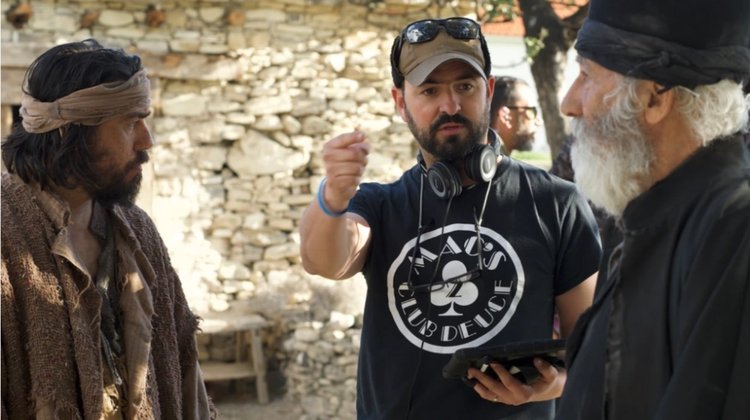
The new film by Cypriot director Minos Papas, ‘Motherwitch (Dodecameron: The Twelve Days of Christmas)’, set to be released in theatres early next year, centres around Kallikantzaroi.
In Christian tradition, the ‘Twelve Days’ refer to the twelve-day period from Christmas to Epiphany. According to Greek folklore, it is a time when the Kallikantzaroi, strange little creatures who live underground, come to the surface and live among humans.
In an interview with The National Herald’s Greek Edition Periodiko, Papas discusses what inspired the film and his efforts to give the international audience a side of Cyprus that has never been presented on the big screen.
Below, the interview in full:
Cypriot folklore, the Kallikantzaroi, are central to the film.
Yes, what inspired me for this film is the folklore about the Kallikantzaroi. There is a. version of the myth of the Kallikantzaroi, in Greece, Cyprus, and other Balkan countries, that says they come from the souls of dead children who return during these twelve days of Christmas to find their parents. There was study by a leading Cypriot artist, an engraver named Hambis Tsangaris, about the Kallikantzaroi.
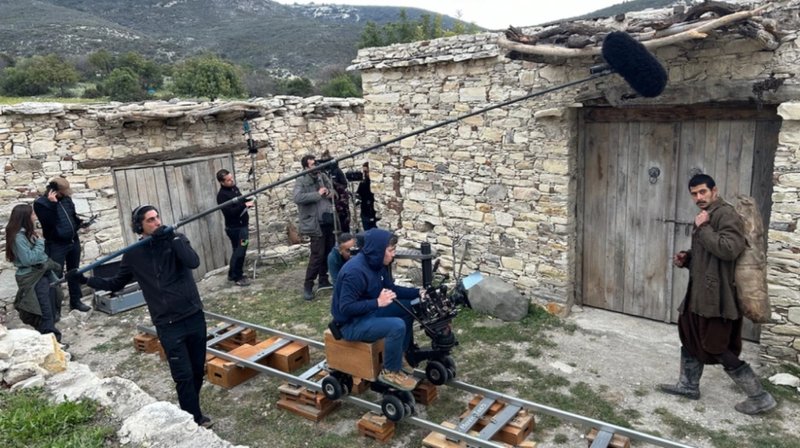
Was the language of the era faithfully rendered?
I believe so. I really wanted, since the film is set in the late 19th century, to do thorough research into the dialect of Cyprus, and for this reason, we brought in Euripides Dikaios to join the project. Our dialect is rich, containing the history of the island [including] those who have passed through Cyprus. Some call them conquerors – I call them people who have been assimilated by Cyprus, as anyone who comes and stays in Cyprus becomes Cypriot. Our dialect contains words from Italian, French, ancient Greek, Turkish, and more recently, English. So, we created a language that encapsulates the history of the place, and I wanted the characters in the film to speak this 19th-century dialect. Thus, the audience will hear the dialect with a musical tone as well as historical accuracy.
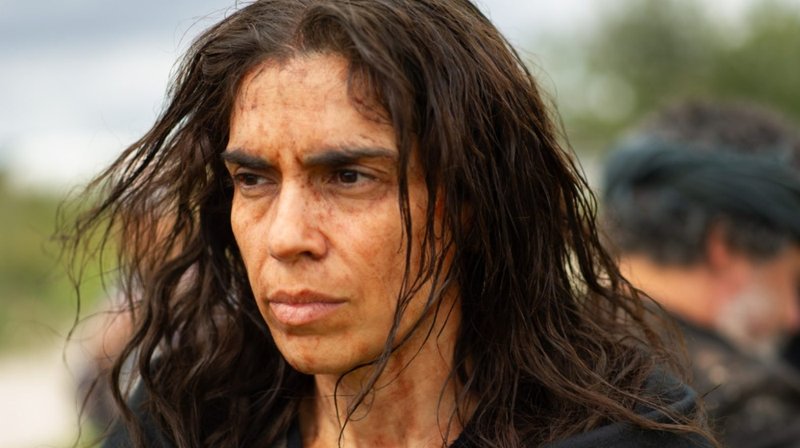
Will the viewer feel the historical context of the time while watching the film?
We are in Cyprus at the end of the 19th century, after Ottoman rule [has come to an end] and during the early years of British rule, with the British finding a Cyprus in decline, with poverty, misery, and diseases left by the Ottomans. The Ottoman Empire was collapsing, which is why they handed Cyprus to the British. This is the historical setting, and along with my artistic director Marios Neokleous and costume designer Lakis Genethlis, we tried to represent it with as much historical accuracy as possible – from the clothes, shoes, weapons, everything, every detail. And we also show the British, far from their country, in a foreign land with which they are having their first encounter and which they would eventually lead to ruin at some point.
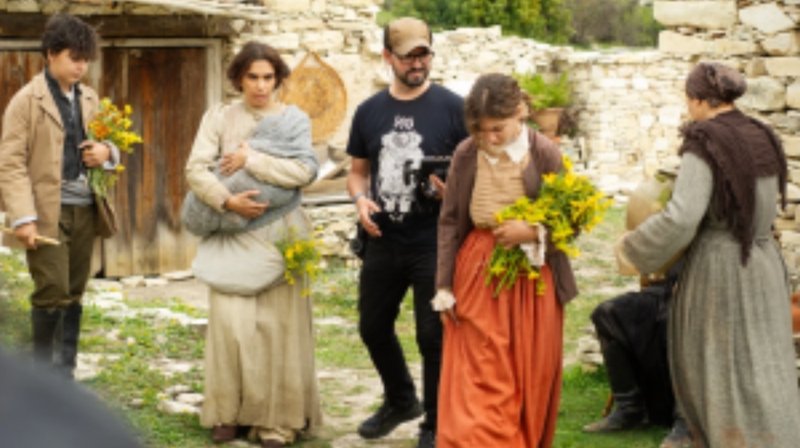
So, in general terms, can we say that the film is an attempt to reintroduce Cyprus to the international audience in a different light?
I try, yes, to give the international audience a side of Cyprus that has never been presented on the big screen.
But the reason for bringing the Kallikantzaroi to the forefront is the unspeakable pain of a mother?
Exactly. The film is about a mother who experiences grief and loss that many parents go through. This element is something I wanted to include in a film because it’s not something we openly discuss in society – we don’t know how to approach it. At the death of a child or in general with death, we say some typical words and leave the other person somewhat isolated to overcome it. However, this loss is hard to overcome. It’s an important social issue I wanted to explore.
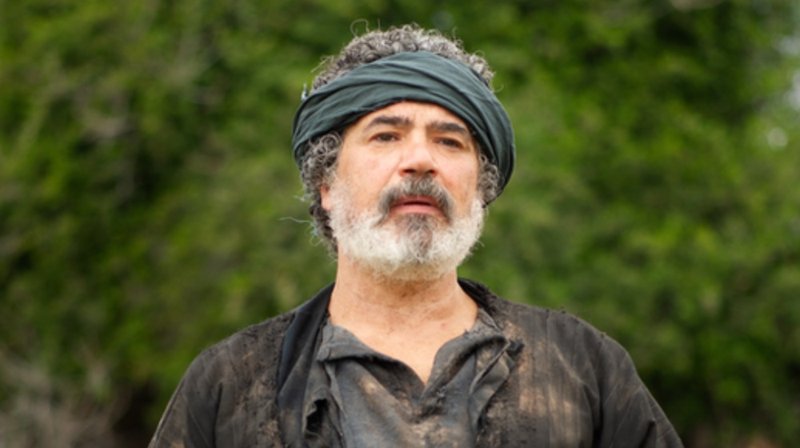
Do you feel a ‘burden’ when creating your films, considering that there’s a family tradition, as your father is the internationally renowned director Michael Papas?
Not at all. My father had very good [advice for me] when I was young, before I started my studies: he told me that there are other jobs. “What you’re trying to do is extremely difficult; perhaps only five directors in the world can do exactly what they want whenever they want,” he said.
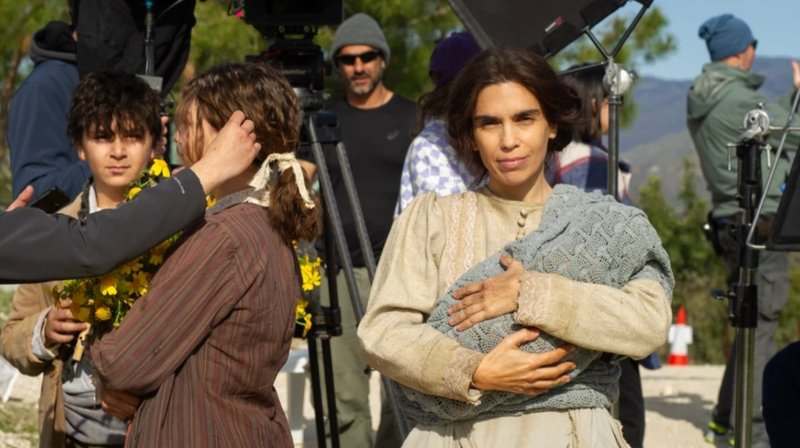
Is that true?
It’s true, and it holds even more today than when he told me, thirty years ago. This work is difficult because you’re not a painter who picks up a brush and paints alone. You’re someone who depends on a lot of money, given with commitments. There are always pressures, and you have a responsibility to your investors.
Who is Minos Papas
Minos Papas was born in London but grew up in Cyprus, which is why he feels 100% Cypriot, and he speaks fluent Greek (literally – if you hear him, you’ll understand).
“When I was in London, my parents insisted, as did my mother, who is English, speaks Greek, and loves both Greece and Cyprus, that I attend Greek school at the Greek Embassy in Holland Park. After completing my military service in Cyprus, I moved to New York. I also spent some time in Cyprus at my parents’ summer cinema, Akropol, which became a cultural centre. In New York, I studied film-making at the School of Visual Arts. I founded my company, Cyprian Films, New York, and had some successes, winning an award at the Tribeca Film Festival for a short documentary. I also won two New York Emmy Awards for documentaries. I made my first feature film, ‘Shutterbug’, in 2010, and recently moved to Los Angeles.”
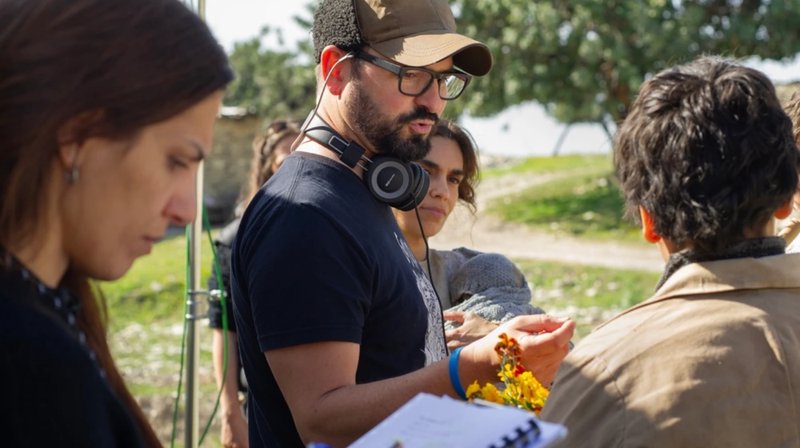
Why Los Angeles?
To be a director and cinematographer and not come to Los Angeles is impossible. I was already travelling there once or twice a year for work, and these trips gradually increased. Eventually, I decided to leave New York and settle permanently in Los Angeles.
The plot:
The film revolves around Eleni, a painter (played by Margarita Zachariou) who lives in a mountain village in Cyprus at the end of the 19th century. When a tragic event occurs, with her three children being killed when the wall of an ancient temple falls on them, she, in her grief, takes her paintings and burns them. Then Saint Marina, protector of young children, appears before her and makes a vow: if she paints her children on Christmas Eve, using the blood of a dead child mixed into the paint, she will bring them back to life. However, what Eleni brings back is not her children but the Kallikantzaroi.
Film Production – Contributors
Minos Papas is not only the director and co-screenwriter, along with Nikolas Kouroumtzis and Evripides Dikios, but also a co-producer of the film with his company, Cyprian Films, New York. The main producer in Cyprus is Constantinos Nikiforou, an old friend with whom Papas has collaborated many times and whose company is Caretta Films. The film was made with the support of the Deputy Ministry of Culture of Cyprus and the Advisory Committee on Cinema. Executive producers are Savvas Liassis, Michael Borrelli, and the Bayha Group.

